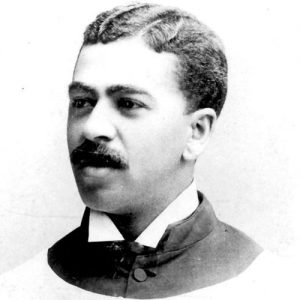“Showing the Path”: Antonin Dvořák in America
By 1891 – at the age of fifty – Antonin Dvořák was that rarest of living composers: successful, world famous, and not in financial need. Dvořák’s music has a distinctly Czech “flavor” to it, and it was Dvořák’s fame as a “nationalist” composer that made him an attractive catch for an American philanthropist named Jeanette Meyers Thurber, who had founded the National Conservatory of Music in New York City in 1885.
On June 5, 1891, Thurber cabled Dvořák in Prague and offered him the Directorship her National Conservatory of Music. The moment was auspicious, as the following year – 1892 – marked the 400th anniversary of Columbus’ presumed “discovery of America.”
At this signal moment in American history, Jeanette Thurber wanted Dvořák to help found – through his own example – an “American” school of composition at a time when almost every American composer wanted to sound like Brahms.
Ms. Thurber made Mr. Dvořák an offer he could not refuse: come to New York, become the director of her conservatory, teach three hours a day, and put together some concerts. For this the National Conservatory was prepared to pay dearly: Dvořák was offered a three-year contract at a whopping $15,000 a year, the equivalent, today, of around $415,000 a year (and a 2500% increase over Dvořák’s salary at the Prague Conservatory).
Dvořák took the job, but not for the money. In truth, he was seduced by Jeannette Thurber’s vision for American music. He was also in search of inspiration, which he found by the bucket loads in the “New World”. Finally, he was fascinated by the “idea” of America: a huge, sprawling, energy-filled meritocracy in which his own working class roots would be considered an asset rather than a liability.
Dvořák and his family arrived in America on September 27, 1892. A few weeks later the national celebration began, and thus Dvořák had a front-row seat for one of the most sustained binges of “Americana” the nation ever indulged. Two months after Dvořák’s arrival, the well-known critic James Huneker wrote an article suggesting that a “Messiah of American Music” (guess who?) should employ “Negro melodies” to create a new American style of music. Meanwhile, Jeannette Thurber gave Dvořák a copy of Henry Wadsworth Longfellow’s epic poem, The Song of Hiawatha, with the suggestion that Dvořák use it as the basis for what she called “The Great American Opera.”
Dvořák was swept up by all of this. An African-American faculty member at the National Conservatory named Henry Burleigh (1866-1914) sang Dvořák spirituals and plantation songs by Stephen Foster. Dvořák’s not-so-scientific-by-modern-standards investigation into “American music” took him to Buffalo Bill’s Wild West Show in the spring of 1893, where he heard and saw Oglala Sioux Indians sing and dance.
All of these influences (and more) worked their way into Dvořák’s Symphony No. 9, his musical postcard “From the New World.” The symphony was composed in New York City between January 10 and May 24 of 1893. With its references to Spirituals, the plantation songs of Stephen Foster and Longfellow’s The Song of Hiawatha, the symphony has been called “the first great American symphony.”
Which it is most assuredly not.
It is, in fact, a cosmopolitan work: a traditional, German-styled symphony with a thematic veneer of Americanisms layered on top for color. In a rare outburst, Dvořák revealed his pique with those critics who attempted to paint him as an “American” composer:
“So I am an American composer, am I? I was, I am, and I remain a Czech composer. I have only
showed them [meaning the Americans] I have onlyshowed them the path they might take – how they should work!”




